Remember Your One
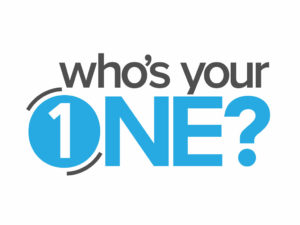 In 2020, I first asked you the question, “Who’s your one?” We talked about it from time to time, had a box full of names in the foyer, prayed for people by name and saw some of our ones visit and even be baptized into Christ. Most weeks the question has remained on the back page of our bulletin. Since we have added new faces over the years, and some of us just need a reminder; I thought it might be a good time to explain again what the question is about and why it matters.
In 2020, I first asked you the question, “Who’s your one?” We talked about it from time to time, had a box full of names in the foyer, prayed for people by name and saw some of our ones visit and even be baptized into Christ. Most weeks the question has remained on the back page of our bulletin. Since we have added new faces over the years, and some of us just need a reminder; I thought it might be a good time to explain again what the question is about and why it matters.- Make a list of people in your circle of influence for whom you will pray.
- Seek to model a Christ-honoring life before them.
- As you interact with them, attempt to understand their world—their hopes, frustrations and fears.
- Build friendships with them and the significant people in their lives—especially their family.
- Watch for opportunities to serve the people and their families for whom you are praying.
- Seize every opportunity to tell the story of what Jesus has done for you and for them.
Thinking About God
 On Sunday evenings this year we are looking at several topics dealing with aspects of theology. For the first five weeks, we talked about the church and its mission. We have asked and answered the question, “Who are we and what are we here for?” Starting this Sunday evening, we will spend several weeks talking about who God is and who He is not. When I consider this topic, I am reminded of a quote from A.W. Tozer that I heard several years ago. “What comes to mind when we think about God is the most important thing about us.”
On Sunday evenings this year we are looking at several topics dealing with aspects of theology. For the first five weeks, we talked about the church and its mission. We have asked and answered the question, “Who are we and what are we here for?” Starting this Sunday evening, we will spend several weeks talking about who God is and who He is not. When I consider this topic, I am reminded of a quote from A.W. Tozer that I heard several years ago. “What comes to mind when we think about God is the most important thing about us.”“In his extensive study of youth and religion, Smith concluded that MTD (moralistic therapeutic deism)–with it’s range of variations–tends to be the operative religion of American young people in the twenty-first century. This new reduced Christianity has three features: it isMoralistic–God wants be to be a good person.Therapeutic–God or religion should help me feel good.Deistic–God is a concept to adorn our lives but not an agent who really does anything.”
– Brian
Why These Guys?
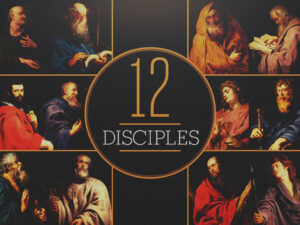 Last Sunday morning, we looked at Luke’s account of the calling of the apostles of Jesus. Every time I consider these twelve men, I think of how differently I would have chosen them. I have always thought to myself that Jesus knew what He was doing and saw things in these men that I did not. After all, to Israel Saul looked much more like a king than David did. God saw something else. What had not occurred to me until recently is that whether Jesus saw something in them or not, He was not alone in the choice of who or how many. It was the Father’s plan. Henry and Richard Blackaby point this out in their book, Spiritual Leadership.
Last Sunday morning, we looked at Luke’s account of the calling of the apostles of Jesus. Every time I consider these twelve men, I think of how differently I would have chosen them. I have always thought to myself that Jesus knew what He was doing and saw things in these men that I did not. After all, to Israel Saul looked much more like a king than David did. God saw something else. What had not occurred to me until recently is that whether Jesus saw something in them or not, He was not alone in the choice of who or how many. It was the Father’s plan. Henry and Richard Blackaby point this out in their book, Spiritual Leadership.“Scripture says Jesus spent an entire night praying before he singled out his disciples. (Luke 6:12-13) On the night of his crucifixion, Jesus reiterated that the Father had chosen the disciples. (John 17:6-7) Jesus did not choose twelve disciples as a matter of strategy. Nor was twelve an optimum number Jesus calculated for pedagogical reasons. He had a dozen disciples for one reason only: that’s how many his Father gave him. Would Jesus have included Judas if he were simply implementing a discipleship strategy designed to multiply his efforts? No. Judas was given to Jesus as a part of God the Father’s redemptive plan. According to Jesus, even the teaching he gave his disciples came from the Father (John 6:49–50; 14:10; 15:15; 17:8).”
“I have manifested your name to the people whom you gave me out of the world. Yours they were, and you gave them to me, and they have kept your word. Now they know that everything that you have given me is from you.” – John 17:6-7
Church Family
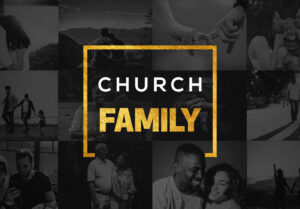 This week I read an interview about how churches often struggle to work within an increasingly secular culture. One statement made by Canadian theology scholar Geoffrey Ready really stuck out to me.
This week I read an interview about how churches often struggle to work within an increasingly secular culture. One statement made by Canadian theology scholar Geoffrey Ready really stuck out to me.
“Now the full number of those who believed were of one heart and soul.” – Acts 4:32a
How Does This Happen?
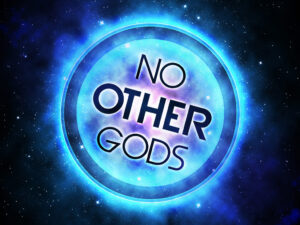 During my recent tour of historical sites and museums related to the civil rights movement, a question echoed in my mind several times: “How does this happen?” Of course that question brought up others. How do people see other groups as less than human? Why are there not more people who stand against injustice? As uncomfortable as that era of history might be to consider, there are many more like it. How does this happen?
During my recent tour of historical sites and museums related to the civil rights movement, a question echoed in my mind several times: “How does this happen?” Of course that question brought up others. How do people see other groups as less than human? Why are there not more people who stand against injustice? As uncomfortable as that era of history might be to consider, there are many more like it. How does this happen?“He does not merely note that humanity is ‘full of envy, murder, strife, deceit, [and] maliciousness,’ (verse 29) then blame all that injustice on society and dream up a utopian political solution the way Karl Marx and Friedrich Engels did. Paul does not look at the bad fruit on the human tree and then suggest replanting it in the different soil of some new political ideology. Paul knows that the human tree is so hopelessly sick that whatever soil you plant it in, toxic fruit will form. No amount of political revolution, social engineering, or policy tweaking will stop envy, strife, deceit, and maliciousness from sprouting out of our sick hearts. Why were all the utopias of the modern era doomed to fail? Because the evil did not originate in politics, society, or the economy. It is expressed there, but evil originates in human hearts that ‘exchanged the glory of the immortal God for images resembling mortal man and birds and animals and creeping things.’ This, then, is how Paul adds deeper hues to our picture of injustice. Look deep enough underneath any horizontal human-against-human injustice and you will always find a vertical human-against-God injustice, a refusal to give the Creator the worship only the Creator is due. All injustice is a violation of the first commandment.”
“You shall have no other gods before me.” – Exodus 20:3
EEM 30 Days of Prayer
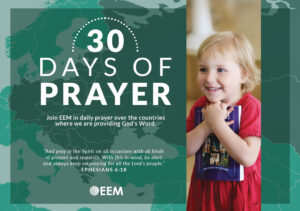 Each fall we have a contribution for EEM’s Million Dollar Sunday. It is their largest fundraising effort of the year in their effort to print and distribute Bibles to people in more than 30 nations. In 2021, Southwest gave $20,139, which provided 4027 Bibles!
Each fall we have a contribution for EEM’s Million Dollar Sunday. It is their largest fundraising effort of the year in their effort to print and distribute Bibles to people in more than 30 nations. In 2021, Southwest gave $20,139, which provided 4027 Bibles!Righteousness and Justice
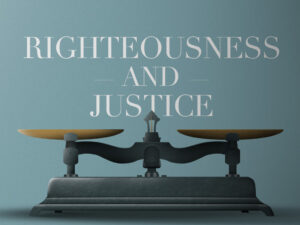 As we talked about last Sunday, the ideas of righteousness and justice are intertwined in scripture. In fact, in the New Testament both of the English words come from the same Greek root. They are translated interchangeably depending on the context. Based on this connection, it would stand to reason that any followers of Christ who believe that righteousness is important should also place a great value on justice. In their book, The Justice Calling: Where Passion Meets Perseverance, Hoang and Johnson explain how this relates to God and people in both positive and negative ways.
As we talked about last Sunday, the ideas of righteousness and justice are intertwined in scripture. In fact, in the New Testament both of the English words come from the same Greek root. They are translated interchangeably depending on the context. Based on this connection, it would stand to reason that any followers of Christ who believe that righteousness is important should also place a great value on justice. In their book, The Justice Calling: Where Passion Meets Perseverance, Hoang and Johnson explain how this relates to God and people in both positive and negative ways.Thank You!
 As I write this on Thursday, VBS is about to get started. It is always an exciting, tiring time filled with lots of activity. In the midst of all that, kids will have the opportunity to learn more about God and how much He loves them. It is a blessing for our church to be part of that process, but it could not happen without the efforts of many people.
As I write this on Thursday, VBS is about to get started. It is always an exciting, tiring time filled with lots of activity. In the midst of all that, kids will have the opportunity to learn more about God and how much He loves them. It is a blessing for our church to be part of that process, but it could not happen without the efforts of many people.As You Go
 Identity is a popular topic in our society. There are frequent debates about what defines who we are and what things are the most important. As Christians we often boil things down to a list of things we do, but being a follower of Jesus has always been something that should change our identity. In his book, A Door Set Open: Grounding Change In Mission and Hope, Peter Steinke writes about how easy it can be for congregations and individuals to lose sight of their mission. That mission is core to identity.
Identity is a popular topic in our society. There are frequent debates about what defines who we are and what things are the most important. As Christians we often boil things down to a list of things we do, but being a follower of Jesus has always been something that should change our identity. In his book, A Door Set Open: Grounding Change In Mission and Hope, Peter Steinke writes about how easy it can be for congregations and individuals to lose sight of their mission. That mission is core to identity.“In In his classic study, Transforming Mission, missiologist David Bosch reported that the Bible passage called the Great Commission, Matthew 28:18–20, was not understood to be primarily about mission until the early nineteenth century. Before then, the verses were read as part of the rite of baptism. Biblical scholarship has revealed that the mandate ‘Go!’ is not in the original Greek. It is a participle—’going.’ The translation would be ‘as you go.’ Theologian David Augsburger notes how broad the mission is with this simple change of ‘as you go’: ‘As you live, as you go about your daily work, as you move to new settings for service, as you join or create new communities of discipleship, as you fulfill your vocation as a follower of Jesus— you shall be witnesses. This is not a sales strategy. This is not a mandate for mass media. This is not a method for achieving church growth. This is a call to authentic, faithful witness in all of life.’”
Go therefore and make disciples of all nations, baptizing them in the name of the Father and of the Son and of the Holy Spirit, teaching them to observe all that I have commanded you. And behold, I am with you always, to the end of the age.” (Matthew 28:19-20)
Out of Brokenness and Into Unity
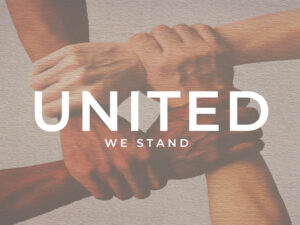 In Galatians 3:28, Paul tells the Galatian church that they are now “all one in Christ Jesus.” For the Galatians who struggle with bringing together in one church people with very different backgrounds, that seems to be a challenge. In his book, Participating in God’s Life, Leonard Allen describes what is happening in Galatia as part of God’s greater work in the world to move people “out of brokenness and into unity.” It is the direction that God has been leading people toward since early in the book of Genesis. Allen continues:
In Galatians 3:28, Paul tells the Galatian church that they are now “all one in Christ Jesus.” For the Galatians who struggle with bringing together in one church people with very different backgrounds, that seems to be a challenge. In his book, Participating in God’s Life, Leonard Allen describes what is happening in Galatia as part of God’s greater work in the world to move people “out of brokenness and into unity.” It is the direction that God has been leading people toward since early in the book of Genesis. Allen continues:One episode in particular emphasizes a shift in direction or a new momentum in God’s plan. From the story of the Tower of Babel we learn that when humans, acting out of pride, seek to unify themselves, they are scattered and their languages are confused. With this in mind, jump ahead several thousand years to Pentecost. Here we see the coming together of many nationalities to hear God’s Word preached by Peter. But the results of Babel make this impossible—how can these diverse people understand the unifying message of Peter? Quite simply, God intervenes and allows the Apostles to speak in languages that everyone present can understand.The structure is the exact opposite of Babel’s: at Babel a unified humanity comes together to celebrate its own unity and is scattered by God; at Pentecost fragmented humanity comes together to hear from God and God makes that word available to everyone in their own language. The result is that unity, though not achieved, is given. The sign of this new unity is that many diverse people are baptized into one, unified name of Christ Jesus. Babel is reversed and continues to be reversed each time God remakes very different people into brothers and sisters.

